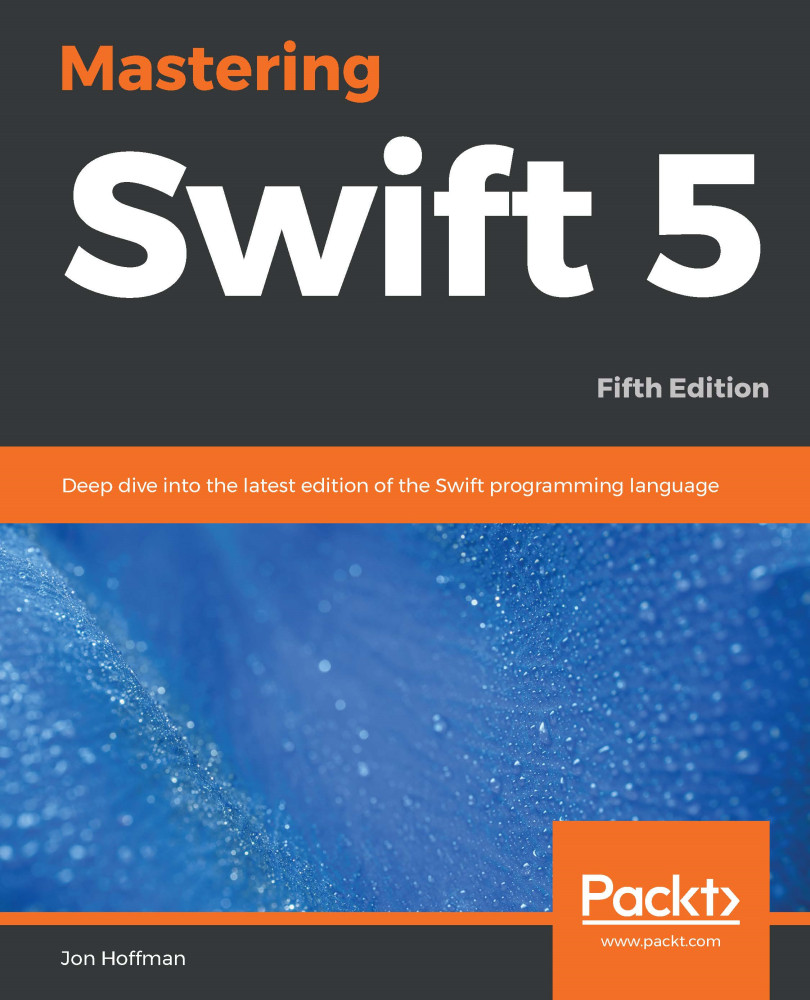Optional binding allows us to unwrap one optional at a time, but what would happen if we had optional types embedded within other optional types? This would force us to have optional binding statements embedded within other optional binding statements. There is a better way to handle this: by using optional chaining. Before we look at optional chaining, let's see how this would work with optional binding. We will start off by defining three types that we will be using for our examples in this section:
class Collar {
var color: String
init(color: String) {
self.color = color
}
}
class Pet {
var name: String
var collar: Collar?
init(name: String) {
self.name = name
}
}
class Person {
var name: String
var pet: Pet?
init(name: String) {
self.name = name
}
}
In this example...


